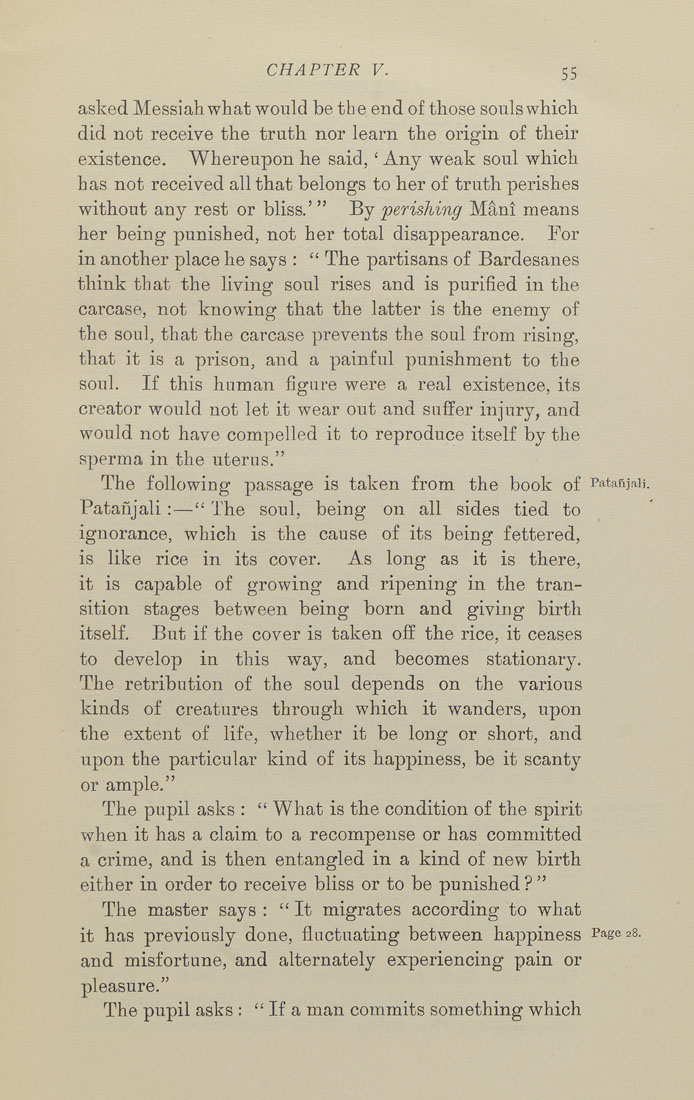Bīrūnī, Muḥammad ibn Aḥmad, Alberuni's India (v. 1)
(London : Kegan Paul, Trench, Trübner & Co., 1910.)
|
||
|
|
|
|
| Page 55 |

CHAPTER V. 55 asked Messiah what would be th e end of those souls which did not receive the truth nor learn the origin of their existence. Whereupon he said, ' Any weak soul which has not received all that belongs to her of truth perishes without any rest or bliss.' " By perishing Mani means her being punished, not her total disappearance. For in another place he says : " The partisans of Bardesanes think that the living soul rises and is purified in the carcase, not knowing that the latter is the enemy of the soul, that the carcase prevents the soul from rising, that it is a prison, and a painful punishment to the soul. If this human figure were a real existence, its creator would not let it wear out and suffer injury, and would not have compelled it to reproduce itself by the sperma in the uterus." The following passage is taken from the book of Patafijaii. Patanjali :—" The soul, being on all sides tied to ignorance, which is the cause of its being fettered, is like rice in its cover. As long as it is there, it is capable of growing and ripening in the tran¬ sition stages between being born and giving birth itself. But if the cover is taken off the rice, it ceases to develop in this way, and becomes stationary. The retribution of the soul depends on the various kinds of creatures through which it wanders, upon the extent of life, whether it be long or short, and upon the particular kind of its happiness, be it scanty or ample." The pupil asks : " What is the condition of the spirit when it has a claim to a recompense or has committed a crime, and is then entangled in a kind of new birth either in order to receive bliss or to be punished ? " The master says : "It migrates according to what it has previously done, fluctuating between happiness Page 28. and misfortune, and alternately experiencing pain or pleasure." The pupil asks : " If a man commits something which |
| Page 55 |







